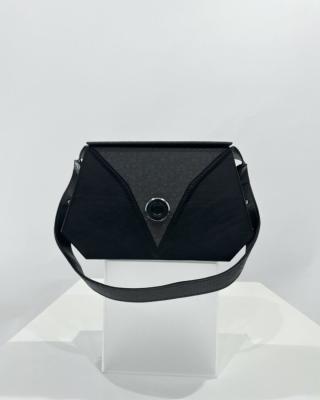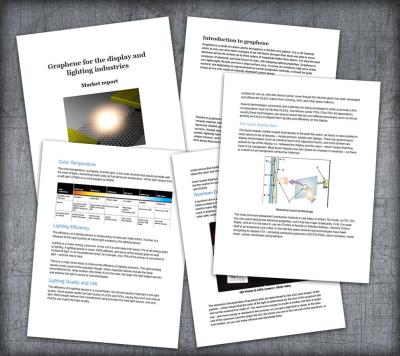Graphene applications: what is graphene used for? - Page 13
Lyten announces manufacturing milestone - producing Lithium-sulfur batteries at greater than 90% yield
Lyten recently announced it is consistently surpassing 90 percent yield from its automated battery production line, confirming the manufacturability of its lithium-sulfur battery utilizing a sulfur cathode and lithium metal anode.
The lithium-sulfur manufacturing performance has been achieved utilizing standard lithium-ion manufacturing equipment and processes. The conversion of lithium-ion equipment to produce lithium-sulfur batteries in Lyten’s pilot facility required 6 weeks and less than 2% of the total capital cost. This confirms Lyten’s ability to rapidly scale by converting existing Li-ion gigafactories to lithium-sulfur with minimal cost and time.
Archer Materials miniaturizes biochip gFET chip design
Archer Materials has designed a miniaturized version of its Biochip graphene field effect transistor ("gFET") chip for fabrication at a commercial foundry.
The Archer Biochip contains a sensing region of which the gFET is the core component. Each gFET chip contains multiple gFETs, each of which is a transistor, which acts as a sensor. Archer has miniaturized the total chip size by redesigning the layout of the circuits creating these gFET transistors. The new miniaturized design has been sent to a foundry partner for a whole-wafer fabrication of reduced size gFET chips, which Archer intends to integrate with other parts of the Biochip technology.
Solidion Technology begins trading on NASDAQ, aims to advance eVTOL aircraft with graphene-enhanced batteries
Solidion Technology, an advanced battery technology solutions developer, began trading on NASDAQ (ticker symbol “STI”) on February 5, 2024. Solidion is the merged entity between Honeycomb Battery Company (HBC, Dayton, Ohio) and Nubia Brand International Co., a special purpose acquisition company (SPAC), based in Dallas, Texas.
Some see electric vertical takeoff and landing (eVTOL) aircraft as the next urban transportation technology breakthrough. At the heart of an eVTOL aircraft is a heavy battery pack. The amount of energy that can be stored in a battery pack with a reduced mass must be significantly increased before the eVTOL industry can literally take off. It is estimated that eVTOL aircraft needs a battery system with a gravimetric energy density > 400 Wh/kg. For an air taxi to carry more passengers, a battery cell energy density higher than 450 or even 500 Wh/kg will be required.
ColossusTex launches a new graphene yarn
India-based textile supply chain company ColossusTex has unveiled a new graphene yarn.
The company states that its new graphene yarn boasts a myriad of benefits that set it apart from traditional yarns, like an antibacterial rate of 99%, odor elimination and significant reduction of the chance of skin diseases. Also, the incorporation of far-infrared health care technology promotes microcirculation on the body surface, enhances blood circulation, and boosts cellular metabolism.
New project will focus on graphene 'lab on a chip' medical diagnostic technology for rapid detection of infections
Researchers at the Liverpool School of Tropical Medicine (LSTM) will collaborate with ProMake, a material science and diagnostic company, as part of Innovate UK's Accelerated Knowledge Transfer Scheme. The new project will investigate how graphene technology could be utilized to rapidly detect infection and act as the basis for new medical diagnostics.
ProMake has developed a novel device prototype, the 'BioPod', a hand-held point-of-care diagnostic containing the graphene lab-on-a-chip (LOC) electrode. The LOC uses functionalized graphene, a super-strong and thin material laced with specific receptors, to detect a wide range of pathogens. The aim is to use the BioPod in the same way as lateral flow tests (LFTs), to test for COVID-19 and other pathogens. However, unlike LFTs, which provide quick results but with less accuracy than tests processed in the lab, the BioPod's advanced technology has the potential to be more accurate and easier to interpret.
Directa Plus and Chronos Corps launch high-tech bag with graphene and fingerprint opening
Directa Plus and Chronos Corps have launched a high-tech bag with graphene and fingerprint opening.
Launched just in time for Fashion Week, this collaboration blends fashion and technology, showcasing the versatility of Directa Plus materials. Crafted with Coating G+®, a special water-based coating enriched with Graphene Plus, this bag not only boasts a sleek design but also offers unmatched functionality, including antimicrobial protection (antibacterial and antiviral), UV resistance, abrasion resistance, antistatic properties and thermal conductivity. It also has advanced fingerprint recognition for secure access.
Graphene-Info publishes a new edition of its Graphene for Displays and Lighting Market Report
Today we published a new edition of our Graphene for Displays and Lighting Market Report, with all the latest information. Graphene has high potential to improve LCD, OLED and MicroLED displays and can be used to enhance displays backplanes, electrodes, emitters and more. In addition graphene can increase efficiency in lighting devices and improve designs. Recently we have seen companies (Asus and MSI) starting to adopt graphene for heat dissipation in gaming monitors, an interesting trend.
Reading this report, you'll learn all about:
- Graphene applications in LED and OLED lighting
- Graphene's adoption as a backplane for AMOLEDs
- Transparent graphene electrodes
- Graphene-based encapsulation development
The report package also provides:
- Graphene companies involved with display and lighting
- An introduction to graphene
- An introduction to lighting and displays
- Details about graphene for QDs, lasers and thermal foils
This market report provides a great introduction to graphene solutions for the display and lighting markets, and covers everything you need to know about graphene technologies in these niches. This is a great guide for anyone involved with the displays and lighting.
Researchers use graphene to develop protective layer for 2D quantum materials
Researchers at the Würzburg-Dresden Cluster of Excellence ct.qmat, along with additional collaborators, have developed a graphene-based protective film that shields quantum semiconductor layers just one atom thick from environmental influences without compromising their quantum properties. This could advance the use of these delicate atomic layers in ultrathin electronic components.
A few years ago, scientists from the Cluster of Excellence ct.qmat discovered that topological quantum materials such as indenene hold great promise for ultrafast, energy-efficient electronics. These extremely thin quantum semiconductors are composed of a single atom layer – in indenene’s case, indium atoms – and act as topological insulators, conducting electricity virtually without resistance along their edges. Experimental physicist Professor Ralph Claessen explained that producing such a single atomic layer requires sophisticated vacuum equipment and a specific substrate material. To utilize this two-dimensional material in electronic components, it would need to be removed from the vacuum environment. However, exposure to air, even briefly, leads to oxidation, destroying its revolutionary properties and rendering it useless.
MITO and Vartega team up to create unique graphene-enhanced carbon fiber composite
MITO Material Solutions has teamed up with Vartega, developer of recycled carbon-fiber composites, on a new composite material project. The two companies incorporated MITO’s graphene-based materials into carbon fiber reinforced thermoplastics. Vartega incorporated MITO’s liquefied graphene into their Fenix fiber EasyFeed bundle products – now offered as Fenix Fiber+, which supplies excellent performance with recycled materials.
Because carbon fiber manufacturing is an energy intensive process, waste diversion is a big factor in improving its sustainability. Carbon fiber is typically made from polyacrylonitrile (PAN) precursor fiber that has been stretched and heated at high temperatures to first oxidize and then carbonize the material. These high temperatures coupled with PAN fibers traditionally coming from fossil fuels, means that carbon fiber has a considerable carbon footprint. By diverting waste carbon fibers from landfill, Vartega resets the material’s embodied energy to zero. Vartega’s recycled carbon fiber is 95% less energy intensive than virgin carbon fiber.
Nottingham houses test graphene-infused infrared wallpaper
A trial is underway in 45 social housing groups across the UK that could revolutionize the way we heat our homes, especially those that have long battled with issues like heat leakage and inefficient insulation. A graphene-enhanced infrared wallpaper, developed by NexGen Heating, is being tested in a project targeting social housing and older properties that are notoriously hard to insulate.
By infusing wallpaper with graphene, NexGen Heating has created a product that emits infrared heat, warming objects and people directly in a manner reminiscent of sunlight. This direct form of heating is not only efficient but also customizable to fit the aesthetics of any room, promising an unobtrusive addition to homes. Furthermore, the potential for integration with solar panels and batteries could make this a cornerstone of sustainable living, significantly reducing reliance on fossil fuels. NexGen Heating says infrared can provide greener, cheaper heating when paired with solar panels and batteries.
Pagination
- Previous page
- Page 13
- Next page

